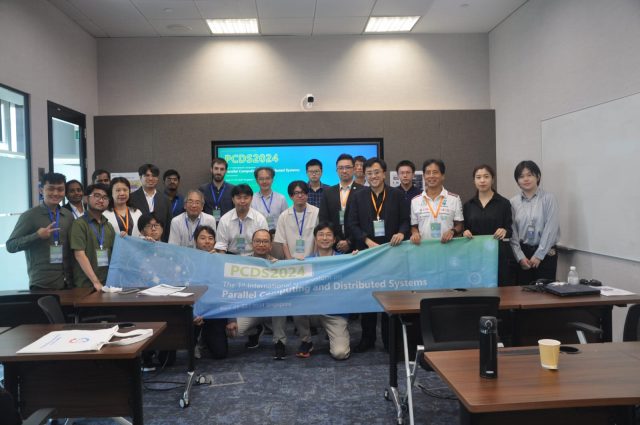BUI Students Participate in the First International Symposium on Parallel Computing and Distributed Systems (PCDS2024)

Students from Binus University International’s Computer Science program had the exciting opportunity to participate in the inaugural Parallel Computing and Distributed Systems Symposium (PCDS2024), held on September 21-22, 2024, in Singapore. This prestigious event brought together leading researchers, professionals, and enthusiasts from around the world to discuss the latest advancements and challenges in parallel computing and distributed systems.
The PCDS2024 symposium, supported by IEEE, served as a platform for exploring new approaches to modeling, designing, and programming parallel and distributed computing systems. As computing technology evolves rapidly, the demand for innovative solutions in this field has become more crucial than ever, with applications ranging from algorithms to networks, operating systems, software engineering, and computer architecture.
The event featured a comprehensive program with invited talks, contributed papers, oral presentations, and industrial sessions, providing valuable insights into the complexities and opportunities of distributed computing. PCDS2024 emphasized the importance of fundamental systems concepts such as concurrency, mutual exclusion, message-passing, and shared-memory models, which play a vital role in building efficient, scalable systems.
The students from Binus University International joined industry leaders and academics in discussing groundbreaking research and ideas in parallel computing and distributed systems. Their participation reflected Binus University International’s commitment to equipping its students with the knowledge and skills required to excel in cutting-edge technological fields.
Being part of PCDS2024 gave the Binus students a unique opportunity to showcase their work, learn from global experts, and network with fellow researchers in the field. This experience not only enhanced their understanding of parallel and distributed systems but also highlighted the importance of collaboration and innovation in addressing complex computational challenges.




